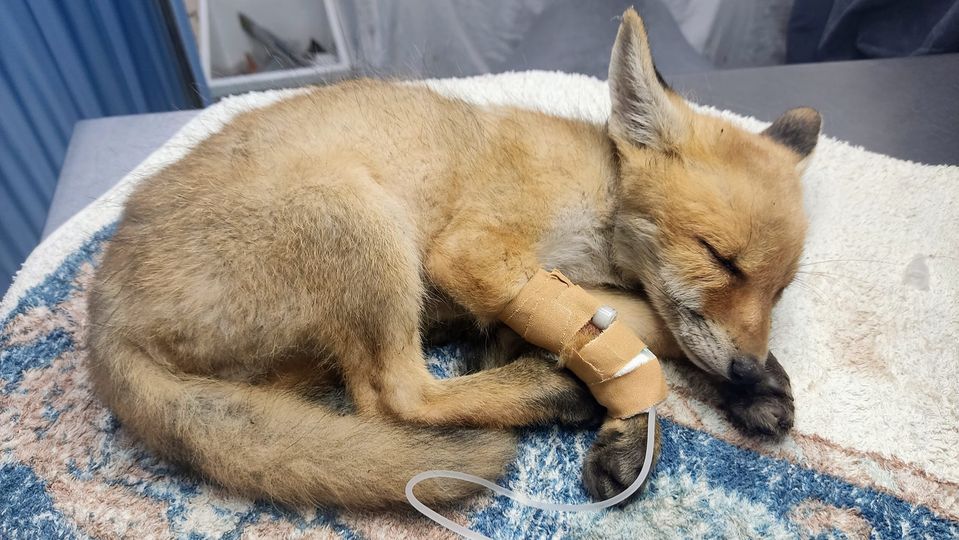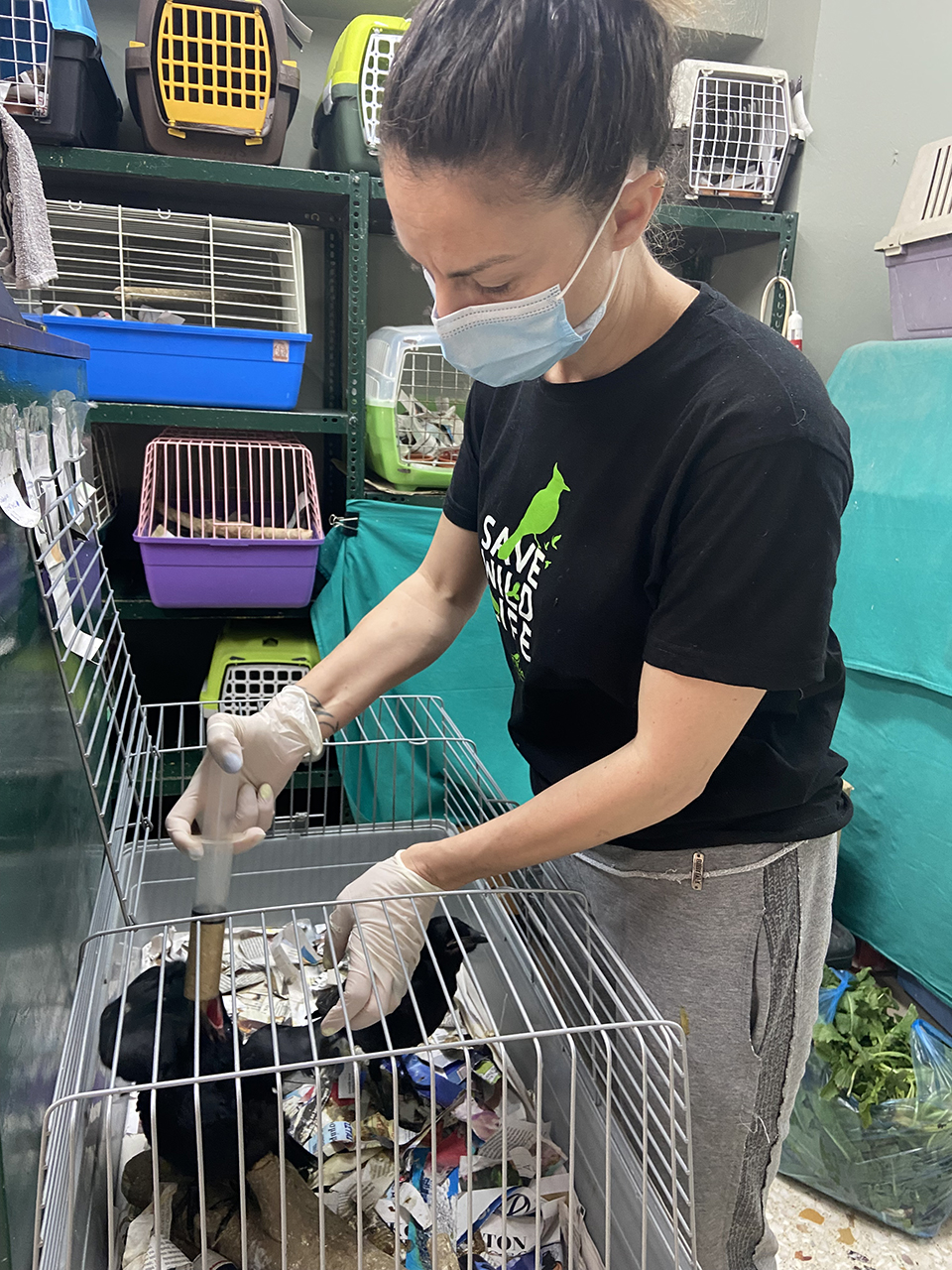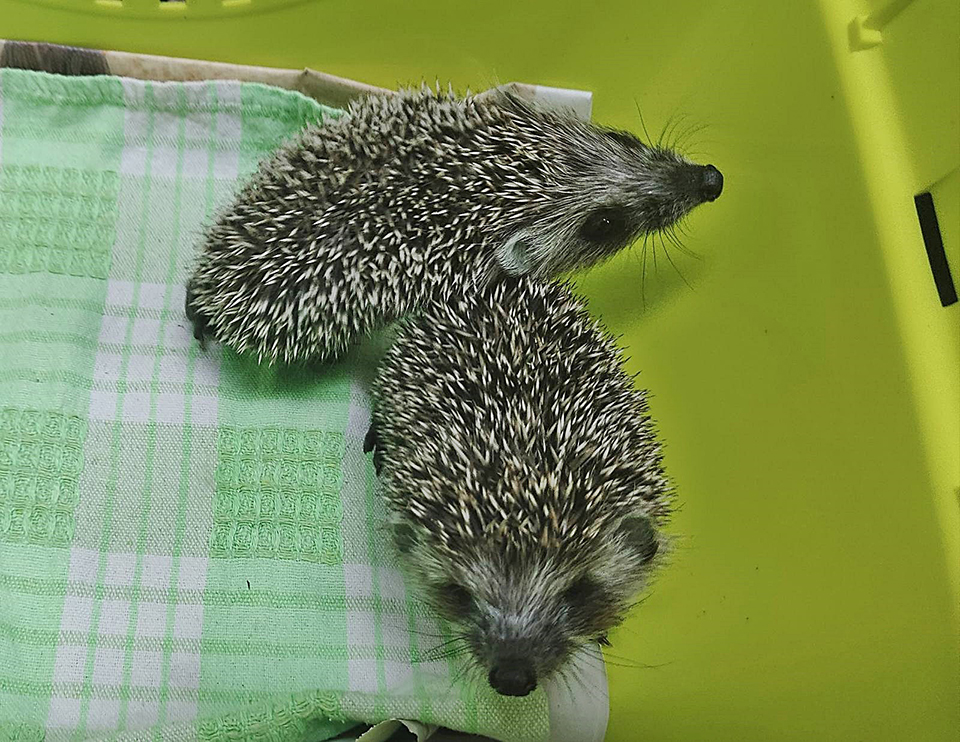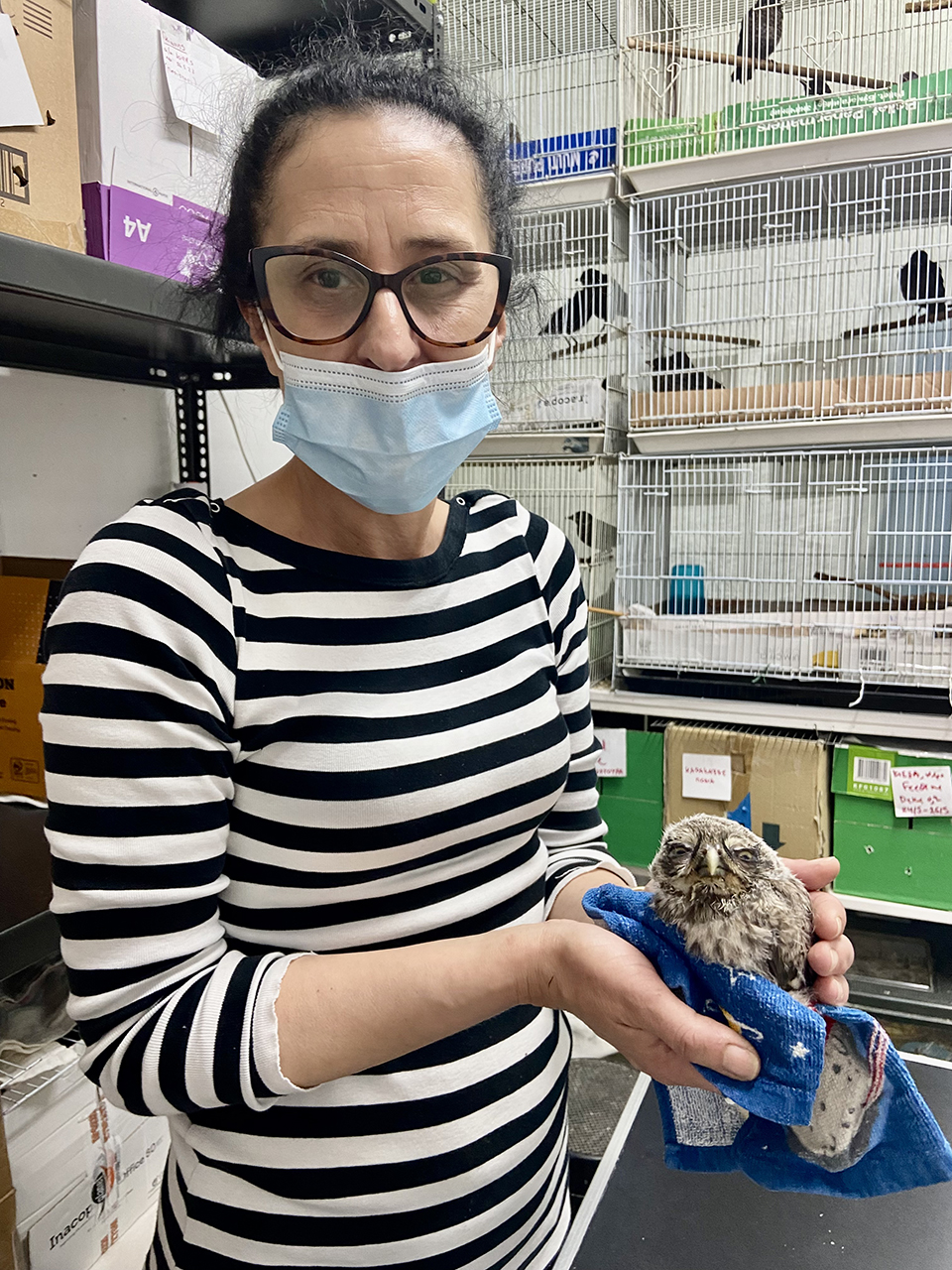
At the station of the Association for the Protection and Care of Wildlife ANIMA, in Kallithea the phone rings non-stop. On the other end of the line, people from all over Greece are calling to report incidents of danger to wildlife – this time mostly newborns.
“Could you bring her to our station?” We will take over,” he says. Angeliki Spiridaki, who works in the secretariat of the association, repeating almost the same words in the last three phone calls. This time, someone informed her that they had found an injured bird that had fallen out of its nest and did not know what to do. “I advised him to bring her to our station because we know her here. reintegration methodthat is, how to treat these birds, grow them and release them into the natural environment, ”Ms. Spiridaki tells K.
These days in the hospitable space of ANIMA are the most active and intense of the year. since April when breeding season until the end of June, it is estimated that more 3000 birds (mainly chickens), foxes, ferrets, hedgehogs, turtles will pass through the care station. It is at this time of the year that citizens most often encounter “representatives” of wildlife on their streets, yards and gardens.

“For the last few days, we have received over fifty wild animals a day. These are various hatchlings, hatchlings that look like hedgehogs or foxes, turtles with shell fractures from movement, emaciated migratory birds. They are brought to us by citizens from all over Attica or by our volunteers who pick them up from KTEL buses and ports,” she tells K. Maria Ganoti, president of the association ANIMA and describes the state in which animals usually arrive at the station these days. “Children come mostly hungry, and the rest are brought to us injured as a result of traffic accidents, from cables, from glass smashes, from cat attacks. At least this time there is no shooting,” he notes.
“I’m glad I was able to bring him here alive and save him.”
While we are talking, people of all ages from different regions are arriving at the station, mostly newborn birds, injured. OUR Marina, 21, came with her father from Agia Paraskevi, holding a newly born magpie in a shoe box. “Last night, when I was riding my bike home, I heard the sound that this bird was making under the trash can. I saw that he could not walk and called my friend to bring me a box and we could take it from there. I’m glad I was able to bring him here alive and save him. I wish others could do the same,” says Marina “K”, accompanied by her father, Yannis Liakouras, says that she is proud of her act. “Maybe my daughter doesn’t remember it today, but when she was very young, she even saved a sparrow in the village!” And in our conversation he adds: “It is important that there are such clubs. Otherwise, we would have saved the magpie, raised it and, when the moment came, would have released it into the wild.

Men and women of all ages quit their jobs to save a hedgehog, an owl, a turtle, a small bird. In the following minutes, other people with boxes continued to arrive at the ANIMA premises. There were women and men of all ages who quit their jobs to save a hedgehog, an owl, a turtle, a small bird.
At the secretariat, Angelica recorded the animals she received on file. Her list continued to grow. A woman came from Nafplio to leave a wounded thrush, and soon a young man arrived who saved the little thrush from the teeth of his cat. “This is not the first time I bring an endangered animal to ANIMA. I came from Haidari but didn’t think about the distance. And if it had been further, I would have done it to save a life,” 23-year-old Pavlos tells K.

“City, refuge for many wild animals”
“Foxes are now acting like stray cats.”
They were noticed in the city 300 kinds wild birds, snakes – most of them harmless – and bats, and animals such as foxes are now found all over Attica, even in bustling urban centers. “Foxes are a phenomenon of recent years, and now they are behaving like stray cats. The city, oddly enough, is a refuge for many species of wild animals. There are places where they can hide, garbage where they can find food, and a lot of food that animal lovers have prepared for dogs and cats. In addition, he has prey for predators, he does not have many predators and, of course, hunting is prohibited in the city, ”explains Ms. Ganoti and answers how people should behave so as not to endanger the wild life in the city . “We must not prune city trees in the spring, do not damage swallow nests, and also have access to the right information before making any wrong move.”

“We are not animal tamers”
Ms Ganoti also refers to an incident last Friday at the 30th Gymnasium in Thessaloniki, when a volunteer called to catch a viper found at the school put his life in danger.
“I think the situation was underestimated, things like this shouldn’t happen. It is impossible to send a volunteer without appropriate training, wearing thick gloves and with special tweezers. Nature is not harmless, and we are not tamers,” says the ANIMA representative, stressing that a certification mechanism should be created for such cases. “Let’s find out who we can go to. I can’t send a volunteer to catch a fox, for example, because then they would need to be vaccinated against tetanus and rabies. He had to be properly trained.”

Need more volunteers
At the ANIMA center, on Menelau Street, Tito, an owl that can no longer fly, and a falcon that has been electrocuted roam the corridors and grounds of the clinic. They are the only wild animals in the organization that have become pets out of necessity, as they can no longer be reintegrated into their natural environment. For everything else, the rules are different. “We don’t come into very close contact with the animals that come here, whether we feed them or take care of them, so they don’t get used to us. We want to be able to release them when they are ready,” she says. Sofia Sfihtu which started two months ago as a volunteer at ANIMA.

“I try to keep the necessary distances,” she agrees. Nectarios Gerasim, who used to be a volunteer and is currently an employee of the organization. However, she won’t forget some special occasions with guest animals, such as a parrot her team spent weeks trying to save after a bird fight. “He had a wound that opened, we stitched him up and stitched him up again. I cannot forget the life force of this animal. And, of course, he succeeded,” he says.
While I’m on site, Maria Ganoti, president and co-founder of ANIMA, is advising volunteers to make sure all priorities are in order. “We are here seven days a week. ANIMA currently employs 100 volunteers. We need a lot more to be able to do whatever it takes,” he says. “Who has the right to do what you do here?” I ask. “We want volunteers to love life, that is, people and animals. We don’t need villains. Everything is learned from there.”
Source: Kathimerini
Ashley Bailey is a talented author and journalist known for her writing on trending topics. Currently working at 247 news reel, she brings readers fresh perspectives on current issues. With her well-researched and thought-provoking articles, she captures the zeitgeist and stays ahead of the latest trends. Ashley’s writing is a must-read for anyone interested in staying up-to-date with the latest developments.